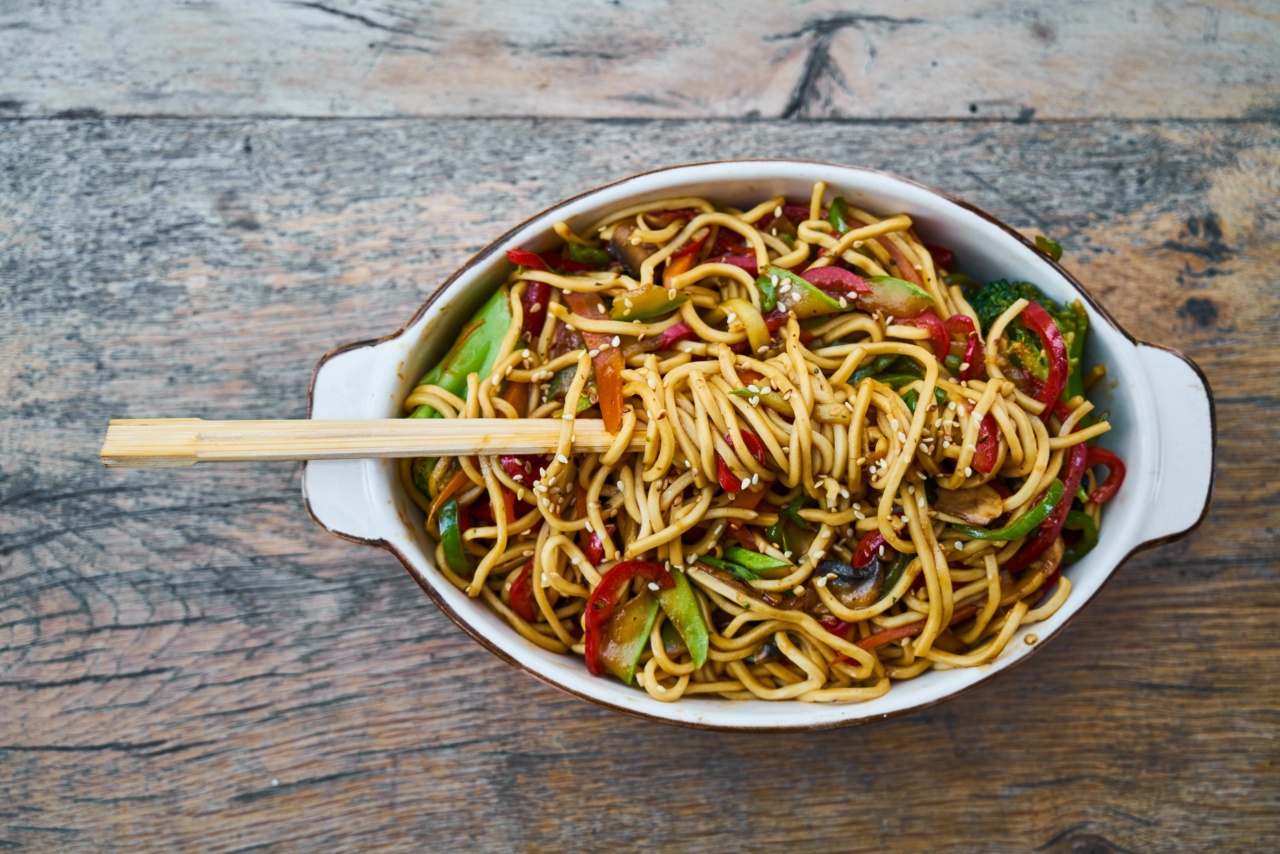Spaghetti is a popular Italian pasta dish that is loved worldwide for its delicious taste and versatility. It is typically made from durum wheat and is available in various shapes and sizes.
While spaghetti is often considered a comfort food, it’s essential to understand its impact on your health. In this article, we will explore the nutritional value and health benefits of spaghetti, as well as some potential concerns to keep in mind.
The Nutritional Value of Spaghetti
Spaghetti is primarily made from semolina, which is a coarsely ground grain that contains gluten. It is a good source of complex carbohydrates, providing energy for the body. A one-cup serving of cooked spaghetti (approximately 200 grams) contains:.
- Calories: 221
- Protein: 8 grams
- Fat: 1 gram
- Carbohydrates: 43 grams
- Fiber: 2.5 grams
- Iron: 11% of the daily recommended intake
- Calcium: 2% of the daily recommended intake
- Vitamin B6: 17% of the daily recommended intake
- Magnesium: 8% of the daily recommended intake
It is important to note that the nutritional values may vary slightly depending on the brand and type of spaghetti you use.
The Health Benefits of Spaghetti
Despite being often associated with indulgence, spaghetti offers several health benefits when consumed in moderation:.
1. Provides Energy
As a good source of complex carbohydrates, spaghetti provides the body with a steady supply of energy. Carbohydrates are broken down into glucose, which is the primary fuel for the brain and muscles.
2. Supports Digestive Health
Whole wheat spaghetti, which contains the bran and germ of the wheat grain, is high in fiber. Fiber promotes regular bowel movements and aids in preventing constipation. It also helps maintain a healthy digestive system.
3. Contains Essential Nutrients
Spaghetti contains essential nutrients such as iron, vitamin B6, and magnesium. Iron is important for transporting oxygen throughout the body, while vitamin B6 is involved in brain development and function. Magnesium supports muscle and nerve function.
4. Can Be Part of a Balanced Diet
When combined with nutrient-rich sauces and toppings, spaghetti can be part of a balanced diet. Adding vegetables, lean proteins, and healthy fats to your spaghetti dish can increase its nutritional value and provide a more well-rounded meal.
Healthy Tips for Enjoying Spaghetti
While spaghetti can be a delicious and nutritious addition to your diet, it’s important to keep a few tips in mind:.
1. Choose Whole Wheat Spaghetti
Opt for whole wheat spaghetti whenever possible, as it contains more fiber and nutrients compared to refined white spaghetti. Whole wheat pasta also has a lower glycemic index, which means it has a slower impact on blood sugar levels.
2. Practice Portion Control
It’s easy to lose track of portion sizes when it comes to spaghetti. Be mindful of serving sizes and aim for a balanced plate that includes vegetables, protein, and fats alongside your spaghetti.
3. Experiment with Homemade Sauces
Store-bought pasta sauces can often be high in added sugars and sodium. Try making your own sauce using fresh ingredients like tomatoes, herbs, and garlic. This allows you to control the amount of salt and sugar in your spaghetti dish.
4. Include Vegetables
Incorporate a variety of vegetables into your spaghetti dish to enhance its nutritional value. Add sautéed mushrooms, spinach, bell peppers, or zucchini for extra flavor and nutrients.
5. Be Mindful of Toppings
While grated cheese and buttery garlic bread may be tempting, they can also add excess calories and unhealthy fats to your spaghetti dish. Opt for lighter toppings like fresh herbs, olive oil, or a sprinkle of Parmesan cheese instead.
Concerns and Considerations
While spaghetti can be a healthy addition to your diet, there are a few considerations to keep in mind:.
1. Gluten Sensitivity or Celiac Disease
Spaghetti is made from wheat, which contains gluten. Individuals with gluten sensitivity or celiac disease should opt for gluten-free alternatives such as spaghetti made from rice, corn, or quinoa.
2. Potential Weight Gain
Overconsumption of any food, including spaghetti, can contribute to weight gain. Portion control and mindful eating are crucial to maintaining a healthy weight.
3. Added Sugars and Sodium
Some store-bought pasta sauces may contain added sugars and excessive sodium. It’s important to read the labels and choose sauces with minimal added sugars and lower sodium content.
In Conclusion
Spaghetti can be an enjoyable and nutritious part of a well-balanced diet.
When consumed in moderation and paired with nutrient-rich ingredients, spaghetti can provide essential nutrients, promote digestive health, and supply your body with sustained energy. Keep in mind the tips for healthy spaghetti preparation and portion control to fully enjoy its benefits while maintaining a healthy lifestyle.































